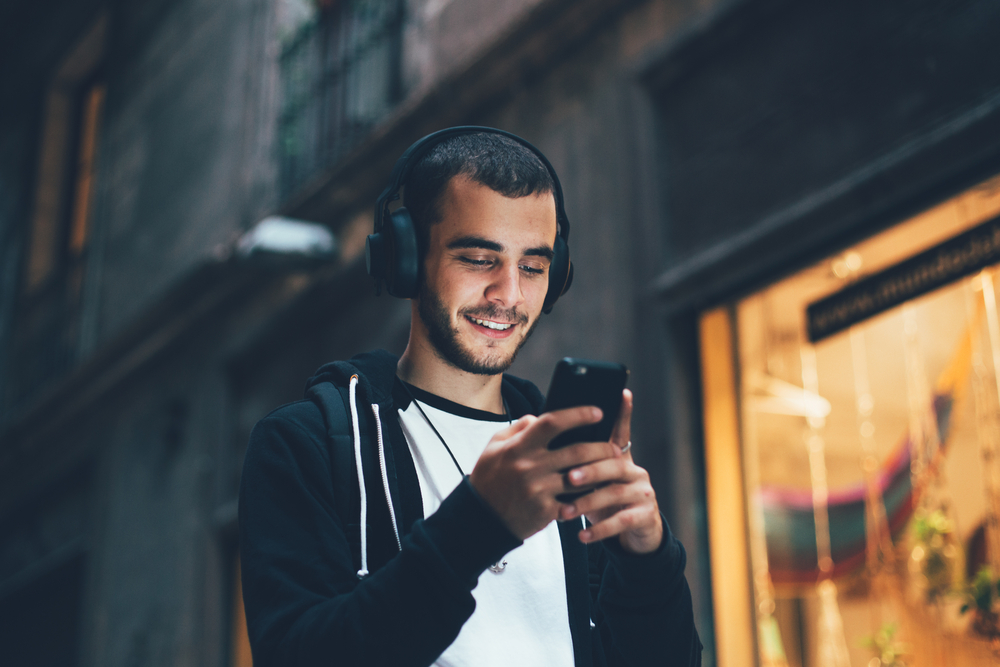
James is a music aficionado who has mastered the art of integrating his favored music into his day-to-day life, easily transitioning from Spotify at his workdesk to Pandora during his runs, and meticulously putting together playlists to perfectly enhance every activity, whether he’s pumping iron, cooking a meal, or immersed in a gaming session. He’s rarely seen without his headphones, which have become an essential part of his day-to-day life, transforming every moment into an individualized audio adventure. However, while James finds relaxation and joy in the immersive world of music, the very thing he loves could be quietly damaging his priceless sense of hearing.
There are safe ways to appreciate music and ways that are more risky to your hearing health. Unfortunately, a, any us lean towards the second option.
What is the link between extended exposure to music and hearing damage?
Over time, loud noises can cause degeneration of your ability to hear. Hearing loss is typically connected to getting older, but recent studies indicate that it is primarily caused by damage from exposure to loud noises rather than being a normal part of aging.
It also turns out that younger ears are especially susceptible to noise-related damage (they’re still developing, after all). And yet, young adults are more likely to be dismissive of the long-term dangers of high volume. So there’s an epidemic of younger individuals with hearing loss, thanks, in part, to rampant high-volume headphone use.
Is it possible to enjoy music safely?
Unlimited max volume is obviously the” hazardous” way to listen to music. There is a way to listen to music more safely, which usually means decreasing the volume. The recommended safe volume levels are normally as follows:
- For Adults: No more than 40 hours of listening on a device, and maintain the volume lower than 80 dB.
- If you’re younger than 18, 40 hours is still acceptable, just be certain to keep the sound at a safe level, 75 decibels or lower.
Breaking it down, you’re dealing with about 5 hours and 40 minutes of listening every day. That seems like a lot, but it can go by relatively quickly. In spite of this, the majority of people have a well-developed awareness of time management, a skill that is generally mastered during early childhood.
The harder part is monitoring your volume. On most smart devices, computers, and televisions, volume is not computed in decibels. Its value is calculated using a somewhat subjective or relative scale. Maybe it’s 1-100. But maybe it’s 1-16. You might be unaware of the maximum volume capacity of your device or how close you are to reaching that limit.
Tips for efficiently keeping track of your music volume
To deal with this issue, a number of free noise tracking applications are available for both iPhone and Android devices. These apps offer real-time information into ambient noise levels, equipping users to calibrate their music volume appropriately.
Because of this, many audiologists suggest using one of the numerous noise level monitoring applications available at no cost. These apps– widely available for both iPhone and Android devices– will give you real-time readouts on the noises surrounding you. That way, you can monitor the dB level of your music in real time and make adjustments.
Comparing relative volumes: from garbage disposals to dishwasher
For example, a volume level of 80 decibels is comparable to the sound produced by a basic garbage disposal or dishwasher – you can hear them, but they won’t blow your ears out. Recognizing this benchmark is essential, as it represents the threshold beyond which hearing damage becomes a substantial danger.
So, being extra cautious when exceeding this decibel threshold is essential. Think about reducing your exposure to exceedingly loud music by listening to specific songs at the highest volume rather than listening to entire albums.
Repeated exposure to increased volume levels can trigger hearing complications including tinnitus and eventual hearing loss. By being cognizant of when our ears venture into the danger zone, we empower ourselves to make educated choices, with the ultimate goal of fostering safer listening practices.
Book an appointment for a hearing assessment
For better prioritization of your hearing health, it is recommended to consult a hearing specialist to book a comprehensive hearing examination. Proactive measures like regular screenings can identify any potential problems early on, allowing for timely interventions and personalized suggestions to safeguard your precious sense of hearing.